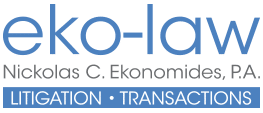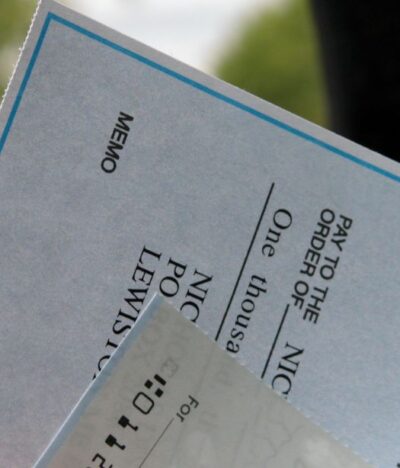Understanding Commercial Property Tenant Rights in Tampa Bay
If you lease commercial real estate in Tampa Bay, it’s essential to understand your legal protections and obligations as a tenant. Commercial property tenant rights in Tampa Bay differ significantly from residential tenant protections, and many business owners are often surprised by what a landlord can, and cannot, do. Knowing your rights means knowing what must be stated in a lease, what obligations you hold under Florida law, and what remedies are available if disputes arise.
Whether you operate in Clearwater or elsewhere in the Bay Area, understanding commercial property tenant rights is key to protecting your business interests.
Table of Contents:
- Key Differences Between Commercial and Residential Tenant Rights
- What Florida Law Says About Commercial Property Tenant Rights
- Common Lease Terms & What They Mean for Tenants
- Maintenance Responsibilities and Triple Net Leases
- Handling Lease Disputes and Business Litigation
- Frequently Asked Questions
Key Differences Between Commercial and Residential Tenant Rights
Commercial tenants in Tampa Bay are not protected by many of the safety nets given to residential tenants. When entering a commercial lease agreement, your rights are primarily governed by the terms you negotiate. This makes it critical to understand the lease agreement in detail.
Key differences include:
- No standard lease terms, everything is negotiable.
- No statutory rent control or habitability standards.
- Limited rights to terminate the lease early.
- Eviction rules that differ from residential proceedings.
Because of these differences, it’s vital to consult a business attorney in Tampa or an experienced Tampa Bay business lawyer before signing anything.
What Florida Law Says About Commercial Property Tenant Rights
Commercial property tenant rights in Tampa Bay are largely defined by Florida statutes and the lease agreement itself. While there is no single “commercial landlord tenant law” in Florida, several statutes apply:
- Chapter 83, Part I of the Florida Statutes governs commercial leases.
- Unlike residential leases, your lease can limit or remove obligations that would otherwise be codified in law.
- Florida law generally leaves maintenance responsibilities, property taxes, insurance, and other expenses to be allocated by contract.
Some common legal areas include:
- The requirement for written notice before eviction or changes in lease terms.
- Obligations around payment of rent.
- Issues involving unpaid rent and how landlords must handle defaults.
- Rules for handling security deposits and damage claims.
Florida commercial landlord rights are strong, which places additional pressure on tenants to fully understand lease terms upfront.
Lease Renewal and Termination Rights
A lease must clearly state renewal terms and termination rights. If it’s silent, the tenant may not have an automatic right to extend or terminate early. Written notice requirements for either party should also be clearly established.
Common Lease Terms & What They Mean for Tenants
Understanding complex lease provisions is essential. Here are a few common clauses in commercial lease agreements and how they impact your rights:
Triple Net (NNN) Leases:
- Tenant is responsible for base rent plus property taxes, insurance, and maintenance.
- The lease the tenant signs should clearly define each cost and what services are included.
Personally Guaranteed Leases:
- The tenant (or owner) personally guarantees the lease, meaning they are liable even if the business cannot pay.
- If you’ve failed to pay rent, landlords can seek payment from personal assets.
Common Area Maintenance (CAM) Fees:
- Cover the cost of shared spaces in a building.
- Always clarify how these fees are calculated and whether they are capped.
Common Pitfalls in Lease Agreements
Many lease issues arise when:
- A lease lacks clarity on rent escalation.
- Tenants sign without understanding “as-is” clauses that shift maintenance responsibilities.
- There is no exit clause or contingency for early lease termination.
- There is ambiguity in what happens if the landlord sells the property.
To avoid these issues, a business lawyer in Tampa Bay should review your lease before you sign.
Maintenance Responsibilities and Triple Net Leases
In Florida commercial leasing, determining who handles repairs, ongoing upkeep, and liabilities often depends on the lease type. In a triple net lease (NNN), the tenant is responsible for most, if not all, ongoing costs of the property.
Key maintenance responsibilities can include:
- HVAC repairs and replacement
- Plumbing and electrical systems
- Pest control and janitorial services
- Roof repairs and structural issues (some landlords reserve this)
When the tenant is responsible, failing to uphold those duties can be considered a breach of contract.
Security deposits are also a contested area. Florida law does not specify accounting practices for commercial security deposits, but your lease should cover how they’re held, returned, or used.
Handling Lease Disputes and Business Litigation
Disputes between a landlord and tenant around unpaid rent, damaged premises, or legal eviction proceedings may require business litigation. A business litigation attorney can represent tenants when disputes escalate beyond negotiation.
Potential dispute issues include:
- Nonpayment of rent or CAM fees
- Improper eviction or lease termination
- Disagreements over maintenance responsibilities or property condition
- Ambiguities in renewal terms or lease duration
In many cases, these matters are resolved through mediation, but litigation may be necessary depending on the stakes. In all situations, a knowledgeable Tampa Bay business attorney can help craft a strategy that protects your long-term business interests.
Commercial Tenant Rights in Tampa Bay
- Florida landlord tenant law for businesses is limited, most rights must be negotiated.
- Commercial leases can shift major costs like property taxes insurance and maintenance to tenants.
- Written notice requirements for lease changes or eviction must follow Florida regulations.
- Tenants should beware of personal guarantees, triple net clauses, and repair obligations.
- A trusted business attorney in Tampa Bay can help you spot red flags before signing.
Frequently Asked Questions (FAQs)
What are my rights as a commercial tenant in Florida?
As a commercial tenant, your rights are mostly determined by your lease. Florida statutes (e.g., Chapter 83) play a minimal role. Your lease should clearly define rent, repairs, deposit treatment, and termination rights.
Can a commercial landlord evict me without notice in Tampa Bay?
No. Florida law requires written notice before eviction. The notice period depends on the reason: three days for unpaid rent or up to 15 days for some other breaches.
What is a triple net lease, and why does it matter?
In a triple net lease (NNN), the tenant is responsible for property taxes, insurance, and maintenance in addition to base rent. These costs can be substantial and should be understood before signing.
If I fail to pay rent, can the landlord sue me personally?
Yes, if you signed a personal guarantee or are operating as a sole proprietor. In a corporate lease without a guarantee, the landlord may be limited to pursuing the business entity.
Who handles repairs in a commercial lease?
It depends on the lease terms. In many cases, especially with NNN leases, the tenant is responsible for all or most repairs. Always clarify maintenance responsibilities upfront.
Contact Eko Law to Speak with Our Business Attorney in Tampa Bay
Understanding the complexities of commercial leases is crucial for any Florida business owner. From responsibility for property taxes and insurance to nuances about written notice and lease terminations, every line of a lease affects your operation and liabilities. Whether you are entering a new lease, renewing, or involved in a dispute, working with a seasoned business attorney in Tampa or a knowledgeable Tampa Bay business lawyer can ensure your rights are protected.
If securing your commercial property tenant rights in Tampa Bay matters to your success, let a reliable advocate guide you through the legal and practical challenges.
Schedule a legal consultation today.







